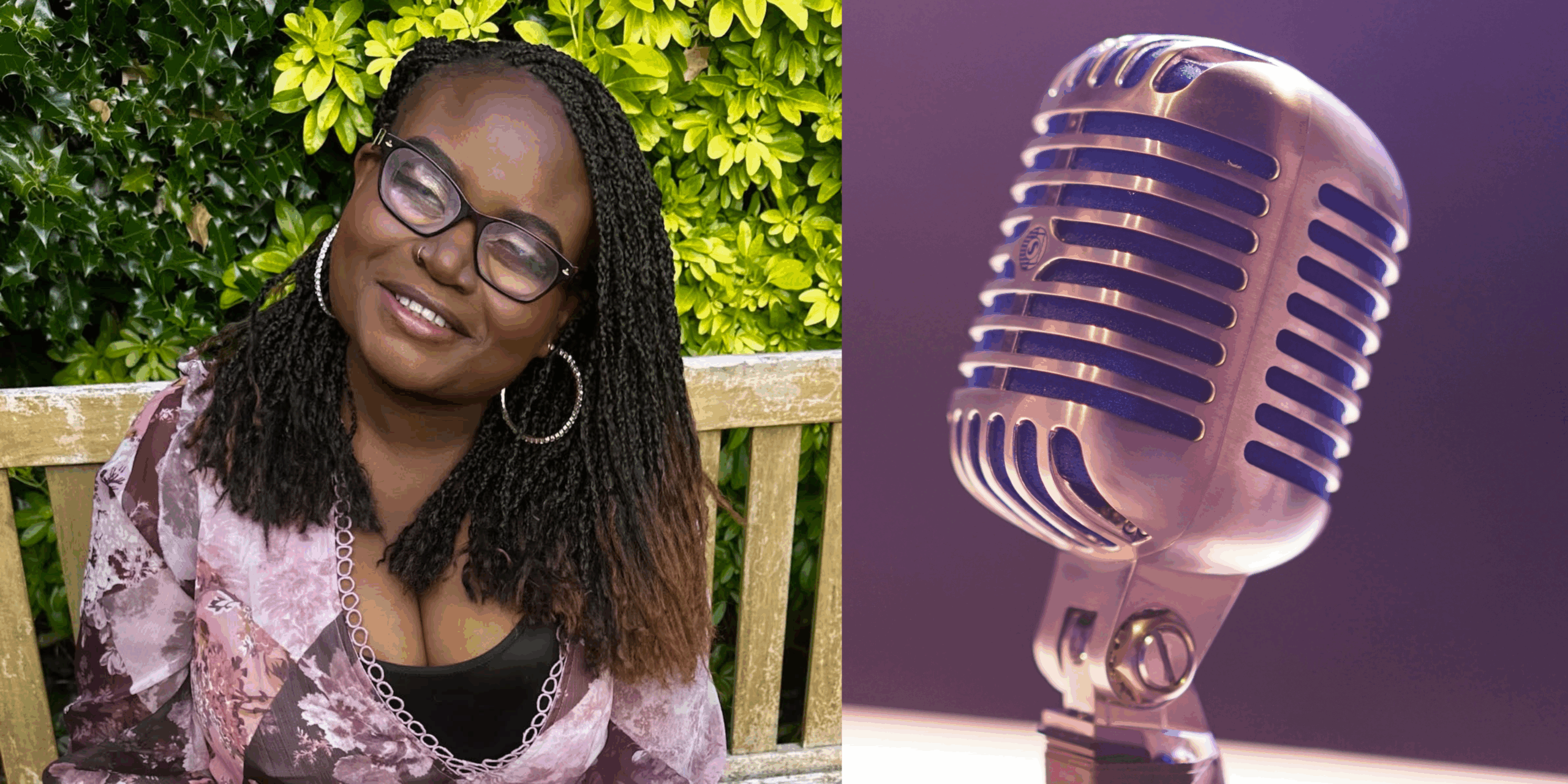
Joy Addo is a mother and podcaster. Her podcast, Joy’s World, is a wonderful, open and honest account of her life as a blind, and (soon to be!) mother of three.
She shares her journey, podcasting, talking about vaginas and what we can do to support visually impaired people.
Can you tell us a bit about yourself and your journey with being visually impaired?
My name is Joy Addo. I am 31, a mother of two girls, and I am currently pregnant with my third child. I have been registered blind since the age of around four. My mum noticed that one eye was smaller than the other, and I was bumping into things a lot as a child. When she finally got me diagnosed, they discovered my inflammatory eye condition, and ever since, I have had many surgeries to keep me with a tiny amount of vision in my left eye.
How has this shaped your identity both personally and professionally?
I feel that having a visual impairment has shaped who I am as a person, as the challenges I have faced have been unique to me.
Navigating the world as a black disabled person has its challenges, but also its perks. I feel that not being able to see has led me to meet some amazing people and, therefore, have some fantastic experiences. However, coming to terms with my disability as a child was difficult, but once I overcame it, I felt life had changed for the better.
What made you decide to start your podcast?
I decided to start Joy’s World podcast as I have always had a lot to say. I felt that my ex experiences as a young black blind single mother at the time were something that I hadn’t heard of many people speaking about publicly and I wanted to voice and share all of my Wild and crazy experiences.
I also wanted to talk about dating as a disabled woman, as again I felt that this was missing. Now on my podcast, after years of recording, I speak about everything to do with my life. I call it an audio diary, which is definitely not suitable for my parents or children to hear.
How do you choose the topics you talk about?
The topics on my podcast vary from week to week, and it often just depends on what has happened to me during that week, if there is anything in particular that has made me feel a certain way. And to be perfectly honest, a lot of the time I just end up talking about vaginas.
Are there any episodes in particular that are personal favourites or that you are really proud of?
At the risk of sounding big-headed, I would say I am honestly proud of every single episode as I know how much it takes to talk and be honest on a public platform. But if I had to pick one or two special episodes, I would say definitely the episodes where I have interviewed People that I look up to hold a special place in my heart.
The episode with Audrey from The Receipts Podcast is one that is very dear to me, as she is a podcast host I have listened to and respected for many years.
How has being a parent shaped your experience of disability?
I think being a parent with a disability has actually made me more confident in myself. When I was pregnant with my first child, everyone from medical professionals to health visitors underestimated my ability to care for my child due to my disability. I then felt that I had a point approved and that I had to do everything myself.
Now, although I know that is not necessarily the best way to go about things, I feel that having that mindset that I can do everything has helped me parent my children and has helped both myself and them understand that we can do anything together. People underestimate blind people all the time, and people underestimate children. But my children are certainly aware of my disability and the challenges I face, but they also understand it is my superpower.
Are there any misconceptions that people have about visually impaired parents that you feel need to be addressed?
I think the main misconception that people have when it comes to being a blind parent is that there are many things we can’t do. Now, although it is always good to get help in general, I think people need to understand that we always find a way around things.
Our children do not go without, and they do not miss out on anything. Just because you may not know how you would cope being a blind parent, does not mean that we are not capable.
What are some small, practical changes that would make everyday life easier for visually impaired people?
I think the main thing that needs to change is people’s attitude towards disability in general. People fear what they do not know, and often, we do not know how having a certain impairment or disability will affect people, and therefore, we display internal ableism.
Once people’s attitudes change towards disability, then people will be more open to reasonable adjustments, which will therefore make many disabled people’s lives much easier.
You can listen to Joy’s World on Apple Podcasts.
Want to read more blogs on disability? Why not visit our blog page to find more!
